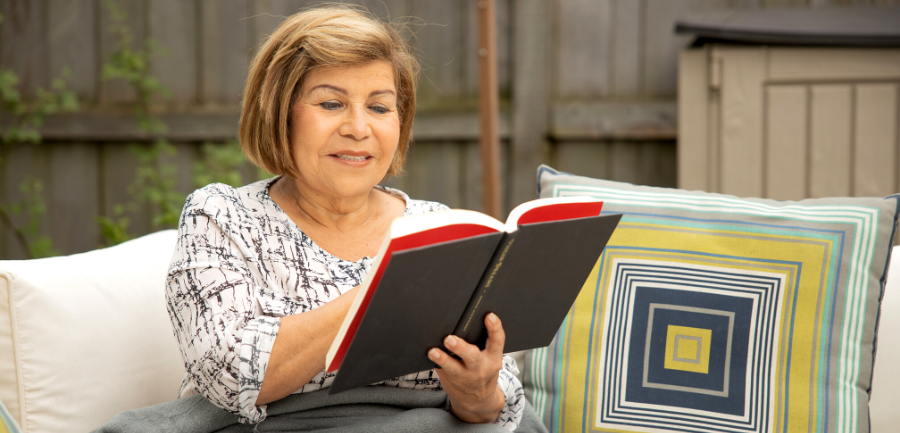
A Beginner’s Guide to Home Care
May 14, 2021As the population ages, more and more elderly people are choosing to stay in their homes, rather than go to a nursing home or assisted living. However, those people may still need some assistance with everyday activities like bathing, dressing, or laundry. While many people have a spouse or family member help with these activities, that isn’t always possible. That means they need to get some in-home care. Having a professional in-home caregiver can be a big help for elderly people. And provide some peace of mind to their families. Here is a beginner’s guide to home care to answer your questions:
What is Home Care for Elderly People?
Home care is simply the term for non-medical assistance with everyday tasks. These ADLs include small, but important tasks like medication reminders as well as more physical tasks like laundry and housekeeping. In addition to these tasks, an at-home caregiver provides some companionship and social interaction for the senior, because many elderly people can become isolated or lonely when leaving the house is difficult for them. Other home care tasks can include:
Meal preparation and planning
Grocery shopping and cooking nutritious meals can be difficult for people with limited mobility, vision or motor skills. An in-home care aide can shop, cook, and clean so that fresh, healthy meals are always available.
Personal care
Bathing, dressing, and other personal hygiene gets more difficult as we get older. Even using the bathroom can be a challenge for seniors. That’s why having a trained caregiver is important. Poor hygiene can be a sign of self-neglect.
Organization and Technology
Technology moves fast, and elderly people sometimes feel left behind. A senior may want to have a video chat with their grandchildren who live far away, but may not be able to operate the technology properly. Seniors may also become disorganized with bills and other important paperwork. Having a caregiver can help with both these issues, as they can help sort paperwork, set up technology, and give the senior detailed instructions on how to do the things they want and need to do.
Errands
Something as simple as picking up a prescription can be difficult for an elderly person with mobility issues. A personal care aide can run errands like going to the post office or picking up prescriptions.
Brain games and activities
Staying mentally sharp can be difficult for someone who lives alone. But puzzles and games can help with this. And an in-home caregiver can provide the needed mental stimulation to help seniors focus.
Not every elderly person in home care will need help with all of these categories.
How Does the Home Care Process Work?
An evaluation by the state to determine what kind of home care services are needed. The elderly person will also have to answer some financial questions to make sure they qualify for the program. Once the level of service needed has been determined, a care plan will be created; detailing the services needed and the number of hours per week that will be covered by an in-home care aide. This plan will be shared with the home care agency, which will handle scheduling an at-home caregiver. The elderly person will always be able to approve the caregiver that provides them services. The care plan will be updated annually, but it can be adjusted as necessary to meet changing needs.
Do You Have to Pay for a Home Care Aide?
The good news is, if the senior living at home qualifies for the program, they don’t ever have to pay anything to receive home care. The home care agency takes care of all the paperwork, and they pay the caregiver directly.
What Happens if the Elderly Person Goes into a Nursing Home or Hospital?
Home care services can be suspended temporarily while the elderly person is in the hospital, an in-patient facility or a long-term care facility. Once they return home, services can be continued at any time. Additionally, the elderly person can decide to stop receiving services at any point they choose, though if they then wished to restart services, they would need to start the process over.
Can a Family Member Serve as a Paid Caregiver?
In most circumstances, an adult child or other non-spouse relative of the senior can be the home care aide assigned to them. All caregivers undergo a thorough background check, even if they are a family member of the person receiving services. The home care agency will then provide some mandatory training.
Home Care Powered by AUAF Provides Quality Home Care Services
Our dedicated in-home caregivers are uniquely qualified to deliver high quality care to seniors who need assistance. We not only provide the best hourly wage for caregivers, we also pay for training so that our caregivers can do the job right. Contact us or call us at to see how Home Care Powered by AUAF can deliver the peace of mind your family needs.
Articles:
-
How to Use FaceTime: a Senior’s Guide
March 20th, 2024 -
The Best Organic Cleaning Products for Caregivers
March 19th, 2024 -
Celebrating St. Patrick’s Day with Seniors
March 14th, 2024 -
Intellectual Activities for Seniors to Keep their Brains Stimulated
March 13th, 2024 -
Tips for Communicating with Seniors with Hearing Loss
March 12th, 2024 -
How to Learn a New Language as an Older Adult
March 7th, 2024 -
Foods that Support Bone Health in Seniors
March 6th, 2024 -
A Note to Our Staff for Caregiver Appreciation Day
March 1st, 2024 -
The Importance of a Senior/Caregiver Bond
February 21st, 2024 -
Recreational Sports as Fitness for Seniors
February 27th, 2024 -
Exploring the Wonders of Reminiscence Therapy
February 15th, 2024 -
Staying Educated on Alzheimer’s Disease and Dementia Care
February 14th, 2024
Call Now! 773.274.9262




